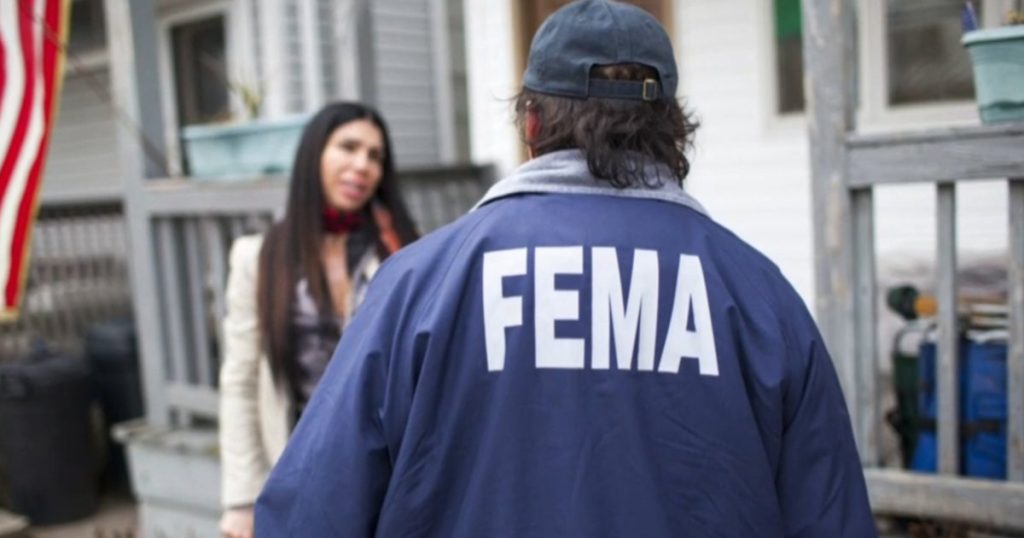An internal review has revealed that the Federal Emergency Management Agency (FEMA) is unprepared for the upcoming hurricane season, a situation exacerbated by staffing cuts and ongoing reforms. The findings, highlighted in a presentation ordered by FEMA’s acting leader, David Richardson, suggest significant challenges lie ahead as the agency confronts a critical period beginning June 1. While an official from the Department of Homeland Security claims the report is out of context, the internal document raises alarming concerns regarding FEMA’s readiness and its evolving role in disaster management.
| Article Subheadings |
|---|
| 1) Overview of FEMA’s Current Status |
| 2) Details of the Internal Review |
| 3) Insights from Leadership |
| 4) Implications for Hurricane Season |
| 5) Future of FEMA Under Current Administration |
Overview of FEMA’s Current Status
FEMA has been navigating through turbulent waters recently. Under the leadership of recently appointed acting administrator David Richardson, the agency is grappling with the looming hurricane season, which officially starts on June 1. Issues surrounding staffing cuts, policy shifts, and critiques from political leaders have created an environment of uncertainty. FEMA’s responsibilities have come under fire, as some officials advocate for a more state-centric approach in managing disasters, thereby diminishing the federal agency’s role. With these developments in mind, it becomes increasingly crucial to assess FEMA’s readiness for the upcoming season.
Details of the Internal Review
The internal review, presented by FEMA management, highlighted various shortcomings and readiness concerns. Created in early May, the presentation outlined that most readiness activities were derailed this year due to other operational challenges. These included employee layoffs and changes to contracting processes that have hindered the agency’s effectiveness. The review also pointed out a pressing need for FEMA to refocus on its core mission, especially in anticipation of the 2025 hurricane season. The data showed that the agency is not prepared, indicating significant gaps that require immediate attention.
Insights from Leadership
During a town hall meeting, David Richardson was queried about the agency’s preparedness, but he remained noncommittal, stating he needed more time to evaluate the situation appropriately. His comments reflect a broader atmosphere of uncertainty surrounding FEMA, as many employees are anxious about the agency’s path forward. Furthermore, Richardson has expressed support for a shift in responsibilities, hinting that states should take on more roles in disaster relief. These viewpoints have raised alarms within FEMA; many employees are concerned about the budding culture issues and internal disagreements regarding how best to proceed.
Implications for Hurricane Season
The implications of FEMA’s unpreparedness for the hurricane season are severe. As the agency confronts the myriad challenges ahead, including potential staffing shortages and a lack of clarity about its responsibilities, many are left questioning how effectively relief efforts can be carried out. This situation could disrupt not only the agency’s operations but also the lives of those affected by natural disasters who depend on federal assistance. Additionally, the pressure to adapt to state-centric disaster response models may weaken the overall effectiveness of FEMA’s operations during critical times.
Future of FEMA Under Current Administration
The future of FEMA hangs in the balance as political discourse surrounding the agency continues to evolve. With the potential for more responsibilities to be transferred to state governments, the question remains: what will be left for FEMA to manage? The current administration has previously expressed criticism towards FEMA, raising concerns about its effectiveness in handling major disasters. As ongoing changes unfold, including potential budget cuts and shifting roles, agencies across the country will need to closely monitor FEMA’s transformation under the new leadership of David Richardson.
| No. | Key Points |
|---|---|
| 1 | FEMA’s readiness for hurricane season is currently in question following staffing cuts. |
| 2 | Internal reviews raise concerns about the agency’s ability to fulfill its core mission this season. |
| 3 | Leadership at FEMA appears to be navigating a challenging reform environment while facing skepticism from the staff. |
| 4 | A shift towards state-centric disaster response may redefine FEMA’s role in future operations. |
| 5 | Ongoing political scrutiny and internal issues may impact FEMA’s effectiveness during critical disaster situations. |
Summary
As hurricane season approaches, FEMA faces significant challenges amid claims of unpreparedness and ongoing staffing changes. The agency’s leadership is navigating a complex landscape of policy shifts that threaten to alter its traditional role in disaster management. With many questions remaining about its operational capacity, the agency’s readiness will need to be closely monitored in the coming weeks to ensure effective response capabilities during critical emergencies. These developments underscore the necessity for clarity and focus for FEMA as it seeks to manage the upcoming season effectively.
Frequently Asked Questions
Question: What are the main issues raised in FEMA’s internal review?
The review highlights staffing shortages, operational challenges, and a need for a refocused mission as primary concerns that threaten FEMA’s preparedness for the hurricane season.
Question: How is the current political climate affecting FEMA’s operations?
The political discourse has led to scrutiny over FEMA’s efficiency, with suggestions that more responsibilities should shift to state governments, which may redefine the agency’s role in disaster recovery.
Question: What should the public know about FEMA’s capacity to respond to disasters this hurricane season?
The public should be aware that there are significant uncertainties surrounding FEMA’s preparedness, which could affect the agency’s ability to respond effectively during emergencies.
